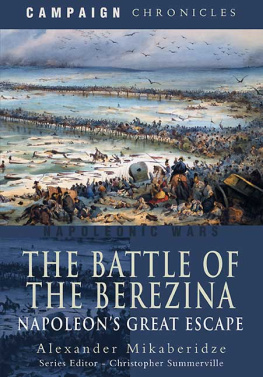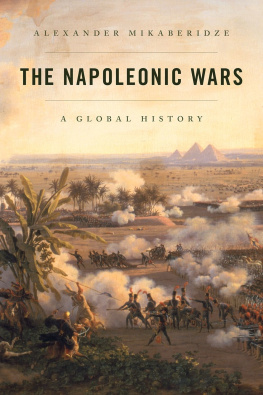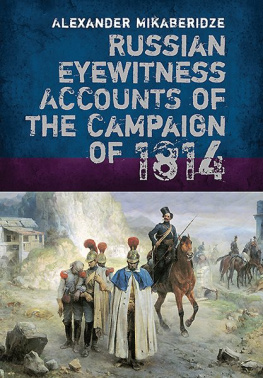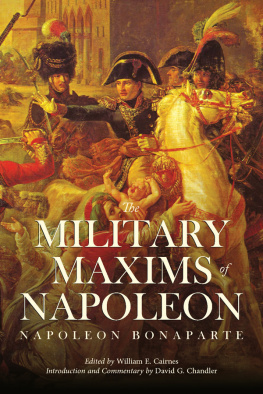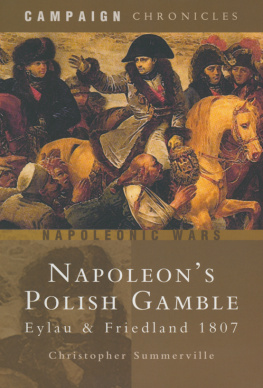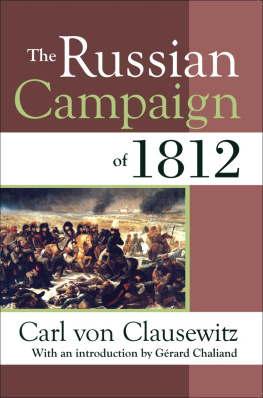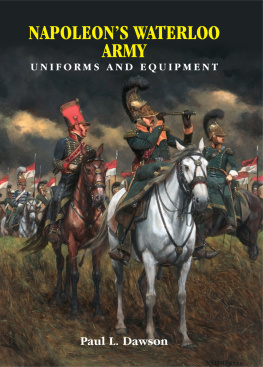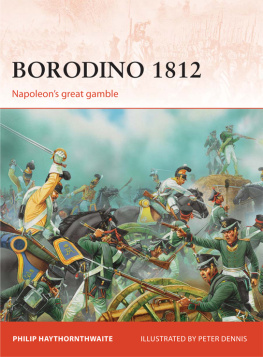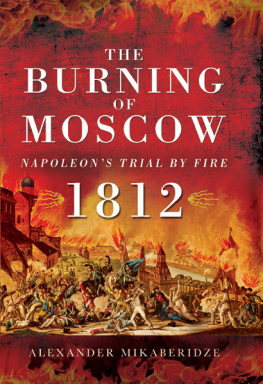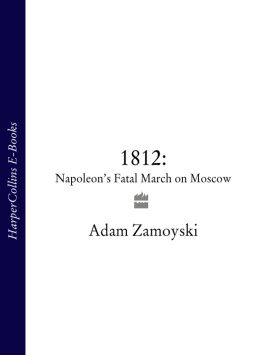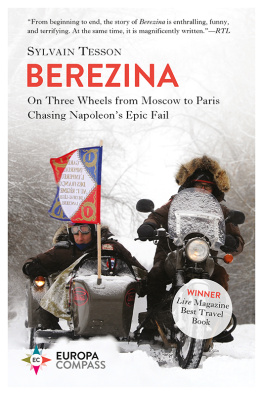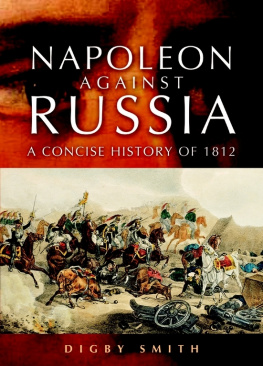Other titles in the Campaign Chronicles series:
Napoleons Polish Gamble: Eylau and Friedland 1807
Christopher Summerville
Armada 1588
John Barratt
Passchendaele: The Hollow Victory
Martin Marix Evans
Attack on the Somme: Haigs Offensive 1916
Martin Pegler
Salerno: The Allied Invasion of Italy
Angus Konstam
The Siege of Malta: 1940 42
David Williamson
The Battle of Borodino: Napoleon Against Kutuzov
Alexander Mikaberidze
Caesars Gallic Triumph: Alesia 52 BC
Peter Inker
The Battle of the River Plate: A Grand Delusion
Richard Woodman
The German Offensives of 1918: The Last Desperate Gamble
Ian Passingham
The Viking Wars of Alfred the Great
Paul Hill
The Battle of North Cape: The Death Ride of the Scharnhorst, 1943
Angus Konstam
Dunkirk and the Fall of France
Geoffrey Stewart
Poland Betrayed: The Nazi-Soviet Invasions of 1939
David Williamson
The Gas Attacks: Ypres 1915
John Lee
Victory at Poitiers: The Black Prince and the Medieval Art of War
Christian Teutsch

In memory of Sergo Mikaberidze, Alexander Sarkisyan and Sargis Orbeliani who knew the hardships of war all too well.
First Published in Great Britain in 2010 by
Pen & Sword Military
an imprint of
Pen & Sword Books Ltd
47 Church Street
Barnsley
South Yorkshire
S70 2AS
Copyright Alexander Mikaberidze 2010
ISBN: 978-1-84415-920-8
ePub ISBN: 9781848849440
PRC ISBN: 9781848849457
The right of Alexander Mikaberidze to be identified as Author of this Work has
been asserted by him in accordance with the Copyright, Designs and Patents Act
1988.
A CIP catalogue record for this book is available from the British Library.
All rights reserved. No part of this book may be reproduced or transmitted in any
form or by any means, electronic or mechanical including photocopying, recording
or by any information storage and retrieval system, without permission from the
Publisher in writing.
Typeset in 11 / 13.5pt Garamond by
Mac Style, Beverley, East Yorkshire
Printed and bound in the UK by
CPI
Pen & Sword Books Ltd incorporates the imprints of Pen & Sword Aviation, Pen
& Sword Maritime, Pen & Sword Military, Wharncliffe Local History, Pen and
Sword Select, Pen and Sword Military Classics, Leo Cooper, Remember When,
Seaforth Publishing and Frontline Publishing.
For a complete list of Pen & Sword titles please contact
PEN & SWORD BOOKS LIMITED
47 Church Street, Barnsley, South Yorkshire, S70 2AS, England
E-mail:
Website: www.pen-and-sword.co.uk
Contents

List of Maps and Illustrations

Maps
Illustrations
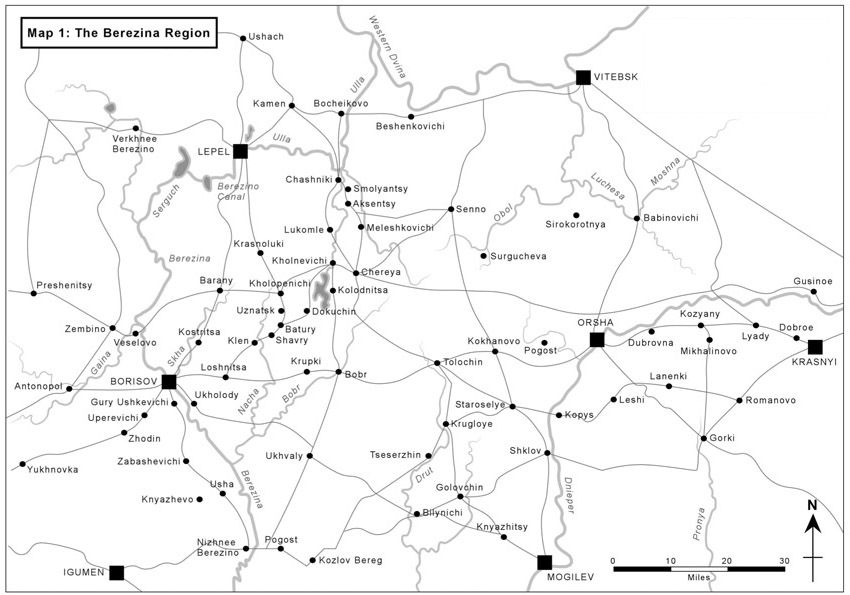
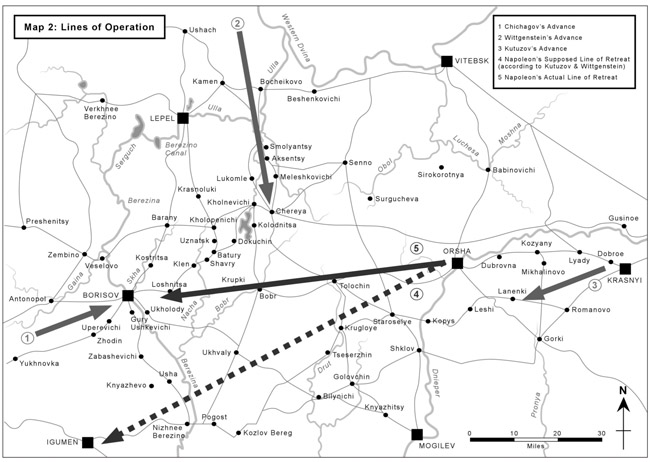
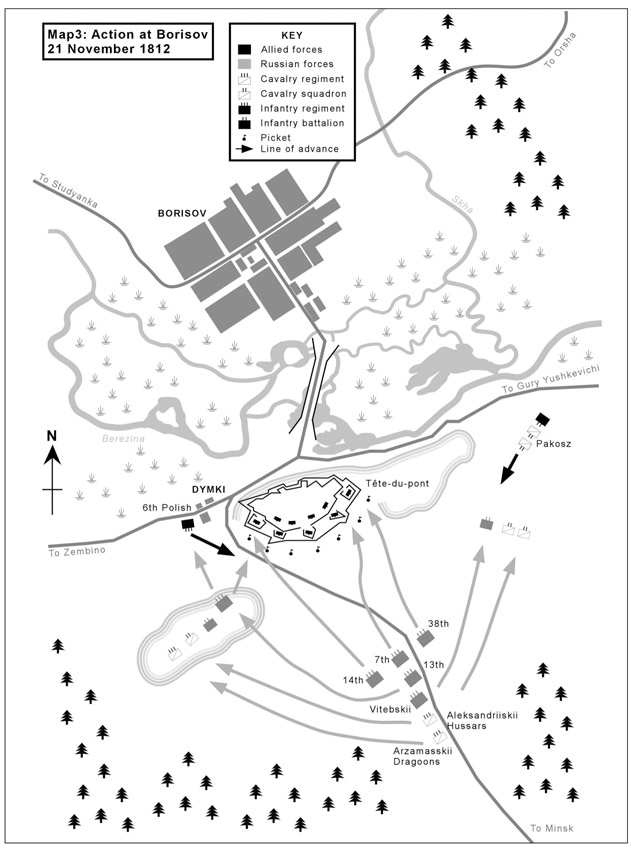
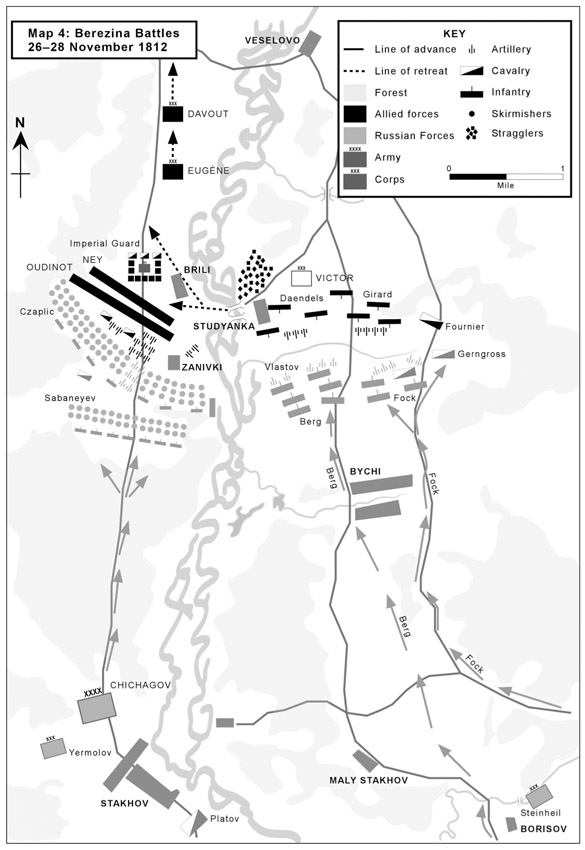
Authors Note

T he name of the Polish General Jan Henryk Dbrowski is often given as Dombrowski or Dambrowski, but I chose to adopt the original Polish spelling of his name. Similarly, Admiral Pavel (Paul) Chichagovs name has been spelled as Tchitchagoff, Tchitchakow or even Tsetshakov/Tshetshakon in Western works, although his name easily transliterates as Chichagov. Faddei Steinheils name is often transliterated as Steingel (in the correspondence of French corps commanders, for example) but Steinheil is the form I have chosen.
As it crossed the Nieman, the Grand Army included soldiers from all over Europe, and yet, despite such diversity, it is frequently referred to as the French Army in historical works, although the French accounted for no more than 50 per cent of total manpower. Out of justice to non-French participants, I decided to use the term Allied, except when dealing with specific French units. Also, to distinguish between the Russian and Allied corps, I chose to use Roman numerals for the Grand Army and Arabic numerals for the Russian corps.
Russia used the Julian calendar until 1917 and so all dates given in the Russian documents had to be converted into the Gregorian calendar. This is done by adding 11 days to dates prior to 1800 and 12 days after. Also, the Allied and Russian armies utilized various measurements of distance and weight and I converted them into modern measurements.
1 verst equals 3,500 feet or 1.0668km
1 sazhen equals 7 feet or 2.1336m
1 toise equals 6.394 ft or 1.949m
1 lieue equals 2.5 miles or 4km
Preface

Csar a pass le Rubicon, mais il n aurait point pass la Brsina.
Henry Murger, Scnes de la vie de bohme
H istory is full of dramatic episodes and probably none more so than the Grand Armys crossing of the River Berezina in November 1812. It is hard to find another example in military history where an army in desperate circumstances suffering from cold, famine and exhaustion, surrounded by the enemies on almost all sides and pressed against a river had extricated itself more skilfully. It paid dearly for the honour it gained, but those who survived the horrors of the crossing remembered their deeds for the rest of their lives while the crossing itself became known as one of Napoleons masterful strokes.
Almost two hundred years separate us from the passage of the Berezina, recognized by the contemporaries as one of the most tragic yet heroic events of the Napoleonic Wars. There, on the swampy shores of the previously unknown river, Napoleon should have been defeated. Yet he survived with the core of his army intact, only further augmenting the myth that surrounded him. Already on 10 February 1813, Guillaume-Joseph Roux, Baron Peyrusse, a paymaster with the Grand Army, described the crossing as a phenomenon while Frdric-Franois Guillaume de Vaudoncourt, the gnral de brigade who witnessed the crossing before being captured at Vilna, wrote in 1815 that the passage of the Berezina is an event of much importance from its political consequences and its bearings on the art of war. General Pierre Berthezne felt that the crossing of the Berezina, in the face of and in between enemy armies, is a remarkable military operation that will add new shades of glory to the army and its general. Baron Henri de Jomini, the famous military theoretician, noted in his Prcis de lArt de Guerre ,
The celebrated passage of the Berezina by the French is one of the most remarkable operations. Never was an army in a more desperate condition,
As years passed and participants began to write their memoirs, the passage became a symbol of endurance and perseverance of the Allied soldiers. Generations later, we cherish the memory of those pontonniers and sappers who, deep in freezing water, built the bridges upon which the Grand Army escaped. Over the years, the Berezina crossing inspired some prominent writers and poets to pick up their stylus Honor de Balzac, one of the greatest French writers, devoted one of his best novellas to the Berezina crossing, laying the foundation for a new genre of historical realism; Victor Hugo evoked the images of the retreat in his famous Chtiments , while Anne Bignan sang dithyrambs to the crossing in Napolon en Russie and Lydia Huntley Sigourney described it in Passage of the Beresina .
Next page
